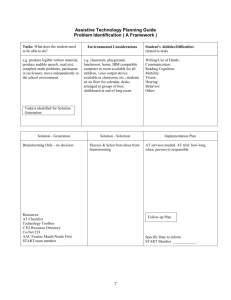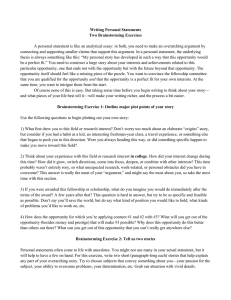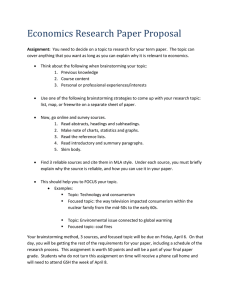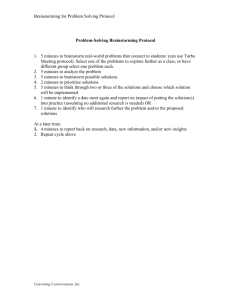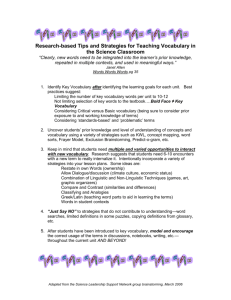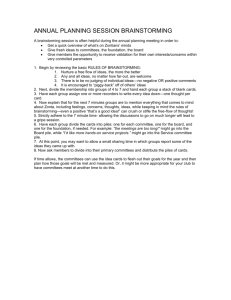From Roger`s book: Finding a Scholarly Topic
advertisement
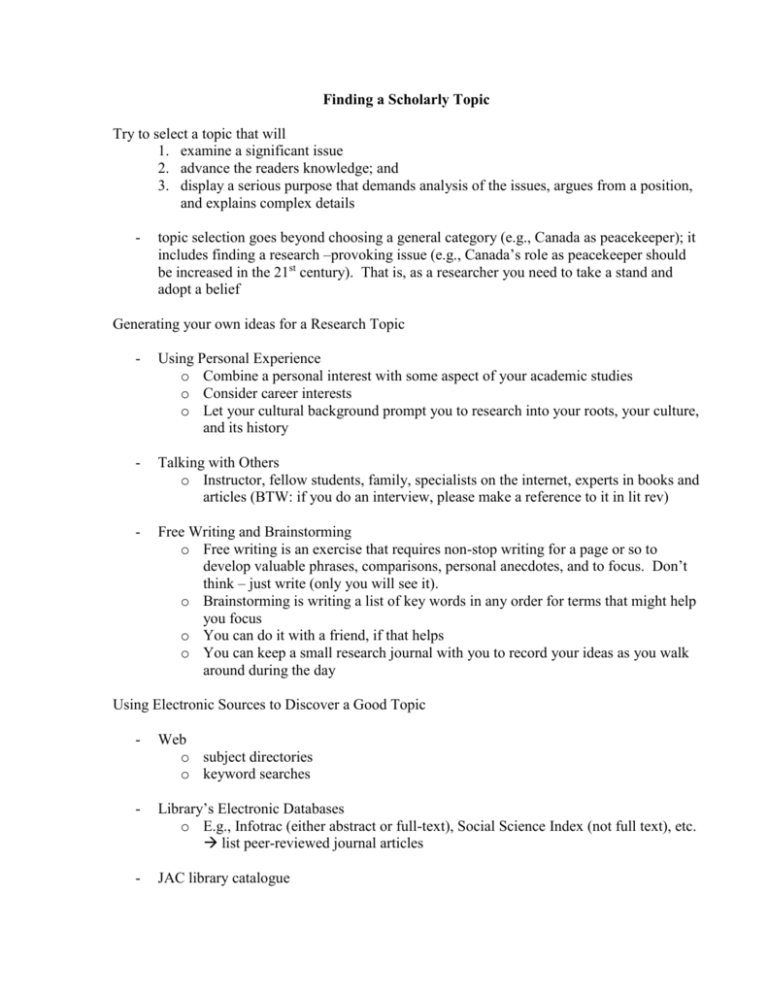
Finding a Scholarly Topic Try to select a topic that will 1. examine a significant issue 2. advance the readers knowledge; and 3. display a serious purpose that demands analysis of the issues, argues from a position, and explains complex details - topic selection goes beyond choosing a general category (e.g., Canada as peacekeeper); it includes finding a research –provoking issue (e.g., Canada’s role as peacekeeper should be increased in the 21st century). That is, as a researcher you need to take a stand and adopt a belief Generating your own ideas for a Research Topic - Using Personal Experience o Combine a personal interest with some aspect of your academic studies o Consider career interests o Let your cultural background prompt you to research into your roots, your culture, and its history - Talking with Others o Instructor, fellow students, family, specialists on the internet, experts in books and articles (BTW: if you do an interview, please make a reference to it in lit rev) - Free Writing and Brainstorming o Free writing is an exercise that requires non-stop writing for a page or so to develop valuable phrases, comparisons, personal anecdotes, and to focus. Don’t think – just write (only you will see it). o Brainstorming is writing a list of key words in any order for terms that might help you focus o You can do it with a friend, if that helps o You can keep a small research journal with you to record your ideas as you walk around during the day Using Electronic Sources to Discover a Good Topic - Web o subject directories o keyword searches - Library’s Electronic Databases o E.g., Infotrac (either abstract or full-text), Social Science Index (not full text), etc. list peer-reviewed journal articles - JAC library catalogue
